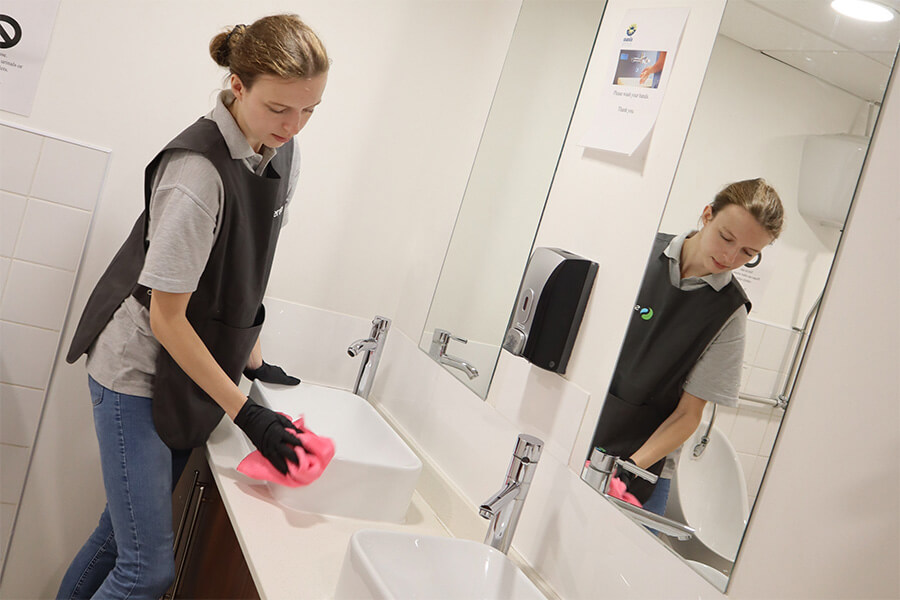Facilities management (FM) is the practice of coordinating the physical workplace with the people and processes within an organisation. The primary objective of facilities management is to ensure that the built environment supports the organisation’s core activities efficiently and effectively. This involves overseeing the maintenance of buildings, managing services and ensuring the health, safety and productivity of all occupants.
What Are The Main Objectives With Facilities Management?
Optimising Operational Efficiency
One of the key objectives of facilities management is to optimise operational efficiency. This means ensuring that buildings, equipment and infrastructure are functioning at their best, reducing downtime and minimising costs associated with repairs or energy wastage. Efficient facilities management helps businesses save money and operate smoothly, contributing to overall productivity.
Ensuring Health and Safety Compliance
Another critical objective is to maintain health and safety standards in the workplace. Facilities managers are responsible for ensuring that buildings comply with legal requirements, including fire safety regulations, accessibility standards and occupational health guidelines. According to the Health and Safety Executive (HSE), workplace injuries and ill health cost UK businesses over £21.6 billion annually, highlighting the importance of effective health and safety management.
Supporting Sustainability Goals
Sustainability is becoming an increasingly important objective in facilities management. Facilities managers play a key role in reducing an organisation’s environmental footprint by implementing energy-efficient systems, waste reduction programmes and sustainable procurement practices. Research shows that buildings account for approximately 40% of the UK’s total energy consumption, making sustainable facilities management essential for reducing environmental impact.

Enhancing Workplace Productivity
A well-managed facility contributes directly to employee productivity and satisfaction. Facilities managers ensure that workspaces are comfortable, functional and conducive to high performance by optimising lighting, ventilation, temperature control and ergonomic design. A positive working environment can lead to improved employee morale, reduced absenteeism and higher levels of engagement.
Cost Management and Budget Control
Managing costs effectively is a fundamental objective of facilities management. Facilities managers are tasked with budgeting for maintenance, utilities, repairs and other operational expenses while finding ways to reduce costs without compromising quality. This involves strategic planning, negotiating contracts with suppliers and using data-driven insights to identify areas where savings can be made.
Maintaining Business Continuity
Facilities management also plays a vital role in business continuity planning. In the event of a crisis, such as a natural disaster, equipment failure or a pandemic, facilities managers are responsible for ensuring that the organisation can continue to operate with minimal disruption. This includes developing emergency response plans, managing risks and implementing backup systems.
Space Optimisation and Management
Maximising the use of available space is another important objective of facilities management. This involves planning and organising workspaces to improve efficiency and accommodate changing business needs. Effective space management can help reduce real estate costs, enhance collaboration and support flexible working arrangements.
Asset Management and Maintenance
Facilities managers are responsible for maintaining an organisation’s physical assets, including buildings, equipment and technology. This involves scheduling regular maintenance, conducting inspections and ensuring that assets are kept in good condition to extend their lifespan. Proper asset management reduces the risk of unexpected breakdowns and costly repairs.
Enhancing Security and Risk Management
Ensuring the safety and security of people, property and data is a key objective in facilities management. Facilities managers oversee security systems, such as surveillance cameras, access controls and alarm systems, to protect against theft, vandalism and other security threats. They also play a role in risk management by identifying potential hazards and implementing preventive measures.
Improving Service Delivery and User Experience
Facilities management aims to provide high-quality services that meet the needs of building occupants. This includes managing cleaning, catering, reception and other support services to create a positive experience for employees, clients and visitors alike. By focusing on service delivery, facilities managers contribute to the overall success and reputation of the organisation.

Driving Innovation Through Technology
The integration of technology into facilities management has become a key objective in recent years. Facilities managers use smart building technologies, data analytics and automation to improve efficiency, reduce costs and enhance the user experience. This digital transformation helps organisations stay competitive and adapt to evolving business demands.
Supporting Organisational Strategy
Ultimately, the objective of facilities management is to align with and support the broader strategic goals of the organisation. Whether it is improving sustainability, enhancing employee wellbeing or reducing operational costs, facilities managers work closely with other departments to ensure that the built environment contributes to the organisation’s success.
Summary
The objectives of facilities management are diverse and far-reaching, covering everything from operational efficiency and cost management to sustainability and employee wellbeing. With the increasing complexity of modern workplaces, facilities managers play a crucial role in creating safe, efficient and productive environments.
By focusing on these objectives, facilities management not only supports day-to-day operations but also contributes to the long term growth and success of an organisation.

